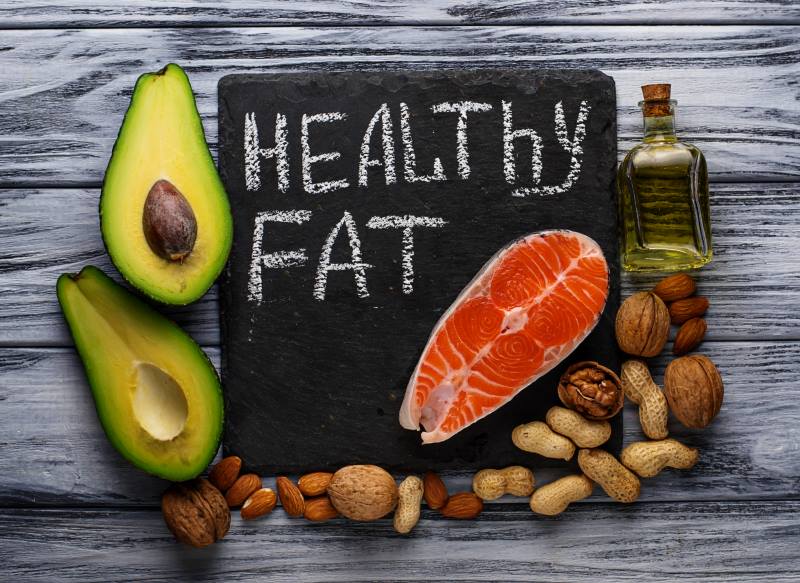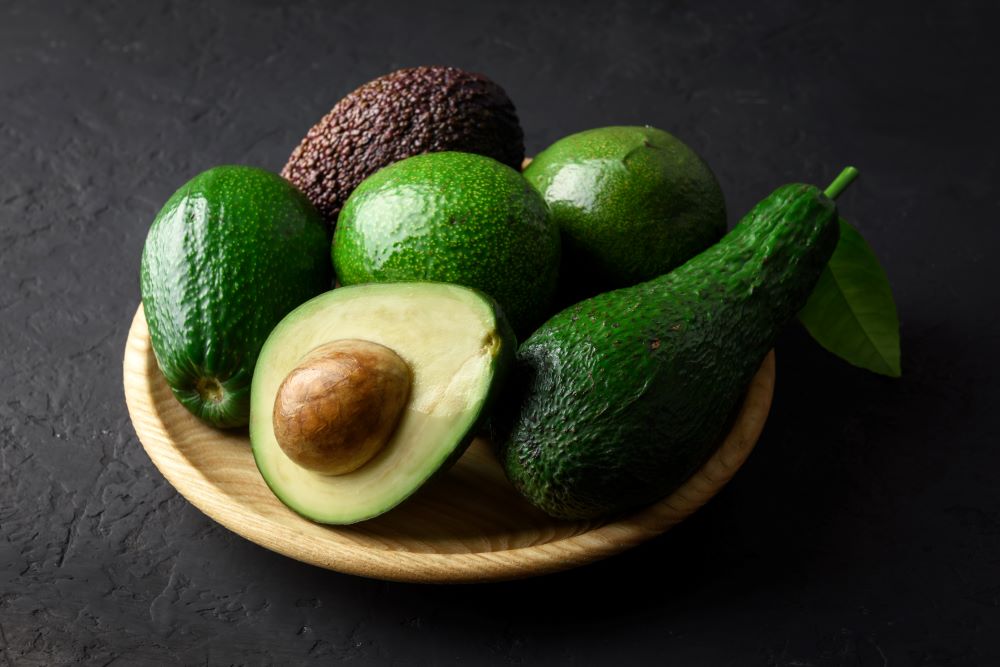11 Fat Deficiency Signs & Symptoms Not to be Avoided

Eating a large amount of fat has adverse effects on a person's health. However, not getting adequate fat in the diet can lead to various problems. Fats are necessary for the body in a specific quantity.
The body uses fat as fuel to function. Keep reading to know the symptoms and signs for diseases caused due to fat deficiency.

Table of Contents

What is Fat Deficiency?
Fat deficiency happens due to the lack of fat in your diet. It can lead to fat deficiency disease such as EFA deficiency disease. Polyunsaturated and monounsaturated fats should be part of everyone's diet. These fats are present in nuts, seeds, avocados, olive oil and fatty fish.
How Common is Fat Deficiency?
Fat deficiency, or a lack of adequate fat in the diet, is uncommon in most parts of the world, especially in developed countries. Fats are a crucial part of our diet, providing essential fatty acids that our bodies cannot produce independently. They are also important for absorbing vitamins A, D, E, and K, which are fat-soluble.
Fat deficiency can occur in certain situations. For instance, individuals who follow extremely low-fat diets or have certain medical conditions that affect fat absorption, such as cystic fibrosis, Crohn's disease, or some forms of liver disease, may be at risk.
In these cases, the body might not get enough essential fatty acids and fat-soluble vitamins, leading to symptoms like dry skin, hair loss, poor wound healing, and weakened immunity.
What are the Diseases Caused Due to Fat Deficiency?
Human beings fall victim to several diseases caused due to fat deficiency. Some of them are
Now that you know about the reasons behind diseases caused due to fat deficiency, let’s find out how to prevent them.
11 Signs & Symptoms of Fat Deficiency
Fat deficiency, also known as essential fatty acid deficiency, can lead to various symptoms due to the essential role fats play in the body. The symptoms of fat deficiency are as follows
Now that you know the symptoms, you will be able to easily identify it beforehand to steer clear of diseases caused due to fat deficiency accordingly.
Useful Tools to Track Your Health
What are the Main Causes of Fat Deficiency?
The primary causes behind fat deficiency are listed below.
Effects of Long-Term Fat Deficiency
Adequate dietary fat consumption is necessary to execute daily biological functions in the human body. If your diet is deficient in fat, you may have symptoms including dry rashes, hair loss, weakened immunity, and vitamin shortages. Most of the fats you eat should be monounsaturated or polyunsaturated to support overall wellness.
Diagnosis of Fat Deficiency
Diagnosis of fat deficiency requires a comprehensive approach that considers clinical symptoms, laboratory findings, dietary habits, and underlying medical conditions.
Clinical Evaluation
A healthcare provider will evaluate symptoms such as dry, scaly skin, poor wound healing, hair loss, and neurological symptoms like tingling or numbness. Symptoms related to hormonal imbalance, constant coldness, and persistent hunger may also be considered.
Medical History
Information about diet, any underlying medical conditions (such as eating disorders or inflammatory bowel diseases), and recent surgeries (like colectomy) will be gathered to assess risk factors for fat deficiency.
Omega-3 and Omega-6 Fatty Acids
Levels of these essential fatty acids can indicate deficiencies. Omega-3 fatty acids include EPA (eicosapentaenoic acid) and DHA (docosahexaenoic acid), while omega-6 fatty acids include linoleic acid and arachidonic acid.
Fatty Acid Profiles
A fatty acid profile can provide a detailed breakdown of various fatty acids in the blood, helping identify imbalances or deficiencies.
Skin Biopsy
Sometimes, a skin biopsy may be performed to assess fatty acid composition in the skin, especially if dermatological symptoms are prominent.
Nutritional Counseling
A registered dietitian or nutritionist may analyse the diet and provide recommendations to increase the intake of healthy fats.
Response to Treatment
If fat deficiency is suspected and dietary changes or supplementation is initiated, improvement in symptoms over time can support the diagnosis.
Imaging Studies
In cases of suspected malabsorption (e.g., due to inflammatory bowel diseases), imaging tests such as abdominal ultrasound or CT scan may be used to assess the condition of the intestines.
Other Blood Tests
Additional blood tests may be conducted to evaluate overall nutritional status, including levels of vitamins and minerals that can be affected by fat deficiency.
29 Best Food Sources to Overcome Fat Deficiency
A diet rich in fat-based foods can help overcome fat deficiency. To increase fat levels, try the food items below and include them in your diet.
Fruits to Overcome Fat Deficiency

Vegetables to Overcome Fat Deficiency

Have these vegetables every day to increase the fat level in your body. Follow the list below to choose your veggies
Other Eatables to Overcome Fat Deficiency

Here are a few options other than fruits and vegetables to include in your diet. Try any of the following from the list below:
How Much Fat Do You Need Daily?
You should consume 20–35% of your daily calories as fat. This equates to 44–78g of fat for people on a diet that contains 2000 calories. A high-fat diet does not pose a safety risk, although most medical experts advise limiting your daily calorie consumption to no more than 30–35% fat.
How to Treat and Prevent Fat Deficiency?
The daily consumption of essential fatty acids should be 2.7% of the total normal calorie requirement for children. Diseases caused due to fats deficiency can be treated by reversing the deficit and dietary EFAs.
Dietary fat is essential to carry out various biological processes in the body. The eighth edition of 2015-2020 Dietary Guidelines for Americans recommends the consumption of 5 ounces of seeds and nuts per week.
How Long Does it Take to Fix Fat Deficiency?
Fixing a fat deficiency depends on the individual's specific situation, including the severity of the deficiency and the underlying causes. In general, incorporating healthy fats into your diet can address a deficiency fairly quickly, within weeks to months.
However, it's essential to consult with a healthcare provider to determine the appropriate course of action tailored to your needs.
Who is at Risk of Fat Deficiency?
Several groups of people are at higher risk of fat deficiency, particularly essential fatty acid deficiency. These include:
Individuals with Malabsorption Disorders
Conditions such as inflammatory bowel diseases (Crohn's disease, ulcerative colitis), celiac disease, and pancreatic insufficiency can impair the absorption of fats and other nutrients.
Patients who have Undergone Colectomy
Removal of all or part of the colon (colectomy) can reduce the surface area available for nutrient absorption, potentially leading to deficiencies in fats and other nutrients.
Infants Fed with Formula Lacking Essential Fatty Acids
If infant formula does not contain sufficient amounts of essential fatty acids (e.g., omega-3 and omega-6 fatty acids), infants may be at risk of deficiency, especially if breastfeeding is not an option.
People with Severe Malnutrition or Eating Disorders
Individuals with anorexia nervosa, bulimia nervosa, or other eating disorders may restrict their intake of fats and other essential nutrients, leading to deficiencies.
Individuals on Very Low-Fat Diets
Extremely low-fat diets, especially if not carefully planned to include sources of essential fatty acids, can result in inadequate intake of fats.
Patients on Total Parenteral Nutrition (TPN)
TPN provides intravenously nutrition and may not always include adequate amounts of essential fatty acids, putting patients at risk of deficiency if it's improperly balanced.
Certain Genetic Disorders
Rare genetic disorders affecting fat metabolism or absorption, such as abetalipoproteinemia or familial lipoprotein lipase deficiency, can lead to fat malabsorption and deficiency.
Individuals with Increased Nutrient Needs
During periods of rapid growth (e.g., infancy, adolescence) or pregnancy, there may be increased requirements for essential fatty acids, and deficiencies can occur if dietary intake is insufficient to meet these demands.
Vegetarians and Vegans
Although it's possible to obtain sufficient fats from plant-based sources (nuts, seeds, avocados), vegetarians and vegans may need to pay careful attention to ensure they consume adequate amounts of essential fatty acids like omega-3s and omega-6s.
Older Adults
Aging can sometimes affect nutrient absorption and dietary intake, putting older adults at risk of deficiencies if their diet does not include a variety of healthy fats.
It's important for individuals in these high-risk groups to be aware of the signs and symptoms of fat deficiency and to seek medical advice if they suspect they may be deficient. Working with a healthcare provider or registered dietitian/nutritionist can help ensure appropriate dietary strategies or supplementation to prevent deficiencies and promote overall health.
Protect What Matters - Explore Other Insurance Options














